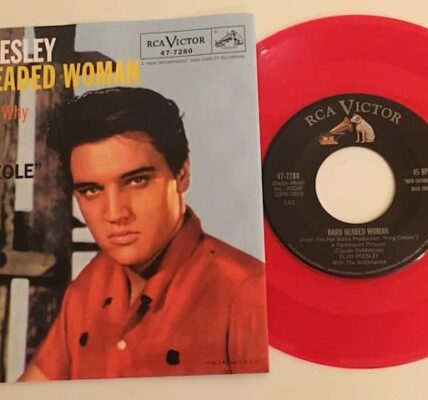One of the gems from the “Memphis Sessions” is Elvis Presley’s “Wearin’ That Loved On Look.”.0h
Introduction:
One such gem from the “Memphis Sessions” is “Wearin’ That Loved On Look.” Composed by Nashville songwriting duo Dallas Frazier and A.L. “Doodle” Owens, the song falls squarely within the realm of country blues. A simple yet effective twelve-bar blues progression underpins the track, punctuated by the rhythmic refrain of “shoop, shoop, shoop, shoop.” Lyrically, the song paints a picture of a man returning home to find his lover’s infidelity writ large on her face – the titular “loved on look.” Elvis’s vocal performance is a masterclass in emotional depth. He effortlessly shifts between smoldering anger and heartbroken resignation, imbuing the song with a palpable sense of betrayal and loss.
While not a chart-topping hit upon its initial release, “Wearin’ That Loved On Look” has since garnered acclaim for its raw honesty and stripped-down blues aesthetic. It stands as a testament to Elvis’s enduring versatility and his ability to deliver powerful performances, even amidst a period of artistic reinvention. The song offers a glimpse into the soul of the King, showcasing his vulnerability and his enduring connection to the blues tradition that first propelled him to stardom.

